Recent Blog Posts
What You Need to Know About Felony DUI in California
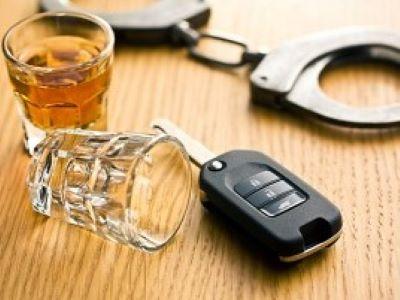 Driving under the influence (DUI) on its own, as a one-time offense, can be a difficult and very challenging charge to face, but the circumstances and consequences concerning felony DUI are even more grave and substantial. Whereas first-time DUI, second-time DUI, and third-time DUI offenses are usually classified as misdemeanor DUIs, there are specific qualities of a felony DUI that make it much more serious. Here is a brief overview of felony DUI.
Driving under the influence (DUI) on its own, as a one-time offense, can be a difficult and very challenging charge to face, but the circumstances and consequences concerning felony DUI are even more grave and substantial. Whereas first-time DUI, second-time DUI, and third-time DUI offenses are usually classified as misdemeanor DUIs, there are specific qualities of a felony DUI that make it much more serious. Here is a brief overview of felony DUI.
Circumstances That Can Lead to Felony DUI in California
In general, the basic requirements for a felony DUI charge in California are at least one of the following:
- You already have three or more DUI convictions over the last 10 years.
“Scooter DUI” Exists in California and It Is Slightly Different from Other Charges
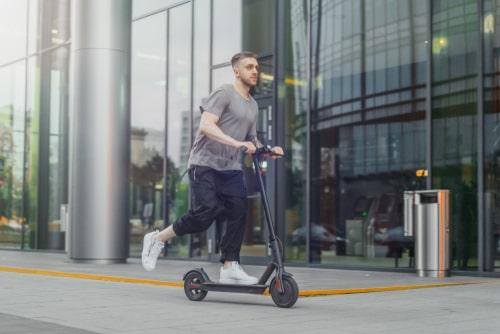 About two years ago, the state of California had its first-ever “scooter DUI” conviction. The accused pleaded no contest to one count of DUI and one count of hit-and-run. As a result, he was sentenced to 36 months of probation, a $550 fine, a three-month alcohol treatment program, and payment of restitution to the victim of the hit-and-run. In other words, in California, you can be charged with DUI from driving on a scooter under the influence. In fact, this particular DUI offense carries with it distinct legal guidelines and penalties different from most other DUI charges.
About two years ago, the state of California had its first-ever “scooter DUI” conviction. The accused pleaded no contest to one count of DUI and one count of hit-and-run. As a result, he was sentenced to 36 months of probation, a $550 fine, a three-month alcohol treatment program, and payment of restitution to the victim of the hit-and-run. In other words, in California, you can be charged with DUI from driving on a scooter under the influence. In fact, this particular DUI offense carries with it distinct legal guidelines and penalties different from most other DUI charges.
Scooter DUI Is Different from Most DUIs—and Can Be Defended More Easily
The DUI laws are slightly different for “scooting” around on scooters relative to other vehicles. While it is true that just like traditional DUI with other vehicles, you could be charged if suspected of driving under the influence of alcohol, drugs, or both, there are some subtle differences that will alter the way the case is handled. Overall, these types of DUIs are different from other DUIs in the following ways:
Key Strategies to Help You Overcome Professional License Issues Caused By DUI
 Driving under the influence (DUI) is a serious offense that should not be taken lightly. By driving under the influence, you not only put your own life at risk but also the lives of innocent passengers, drivers, and pedestrians. In doing so, you could also cause expensive and destructive damage to roads, vehicles, and property. As such, the penalties for DUI in California are severe, including revocation or suspension of your driver’s license, hefty fines, and substantial prison time. However, one area of concern that is particularly significant yet understated is the possible loss of your professional license. A DUI conviction—even a DUI arrest—could put your entire professional career in jeopardy. Here are some ways to minimize the damage to your professional licensure when planning your DUI defense.
Driving under the influence (DUI) is a serious offense that should not be taken lightly. By driving under the influence, you not only put your own life at risk but also the lives of innocent passengers, drivers, and pedestrians. In doing so, you could also cause expensive and destructive damage to roads, vehicles, and property. As such, the penalties for DUI in California are severe, including revocation or suspension of your driver’s license, hefty fines, and substantial prison time. However, one area of concern that is particularly significant yet understated is the possible loss of your professional license. A DUI conviction—even a DUI arrest—could put your entire professional career in jeopardy. Here are some ways to minimize the damage to your professional licensure when planning your DUI defense.
4 Tips for Developing Your Professional License DUI Defense
How a Plea Deal Can Help You Prevent a California DUI Conviction
 Your goal after being charged with driving under the influence of alcohol or drugs is to prevent a conviction, but there are DUI cases where the evidence against you makes a conviction seem unavoidable. Sometimes, you must decide whether you will continue to fight the charge or take a plea deal if one is offered. Plea bargaining can reduce the punishment of a DUI conviction or reduce the charge, and a skilled DUI defense attorney can help
Your goal after being charged with driving under the influence of alcohol or drugs is to prevent a conviction, but there are DUI cases where the evidence against you makes a conviction seem unavoidable. Sometimes, you must decide whether you will continue to fight the charge or take a plea deal if one is offered. Plea bargaining can reduce the punishment of a DUI conviction or reduce the charge, and a skilled DUI defense attorney can help
Common Plea Bargain Scenarios
Most defendants prefer to not have a DUI conviction on their record, even if it means accepting a lesser charge. There are three common plea deals that prosecutors may offer in a DUI case:
- Wet Reckless: A “wet reckless” plea deal means you are accepting a reckless driving conviction while admitting that alcohol or drugs were involved in the incident. The conviction on your record will indicate that you may have had alcohol or drugs in your system but does not say that those substances legally impaired you. The biggest advantage of a “wet reckless” plea is that the court might not suspend your driver’s license. However, the conviction will be treated as if it was a prior DUI offense if you are ever convicted of DUI.
How Should You Respond to Questions During a DUI Stop?
 Being pulled over by a police officer can leave you at a loss for words. Before the officer reaches your vehicle, your mind is probably trying to figure out what you might have done to catch the officer’s attention. Driving under the influence (DUI) may come to mind if it is at night or you had a drink before getting behind the wheel. You have only seconds before you must talk to the officer, so what should you say?
Being pulled over by a police officer can leave you at a loss for words. Before the officer reaches your vehicle, your mind is probably trying to figure out what you might have done to catch the officer’s attention. Driving under the influence (DUI) may come to mind if it is at night or you had a drink before getting behind the wheel. You have only seconds before you must talk to the officer, so what should you say?
The right answer during any traffic stop is the bare minimum. This may be difficult if you are the type of person who rambles or over-explains when you are nervous. If you are eventually charged with DUI, what you say to the officer can be used as evidence as the case proceeds.. The more you talk, the more likely it is that you will say something that draws suspicion or incriminates yourself. There are several questions that you can expect an officer to ask:
“Do You Know Why I Pulled You Over?”
What Happens If I Refuse a Breathalyzer Test in California?
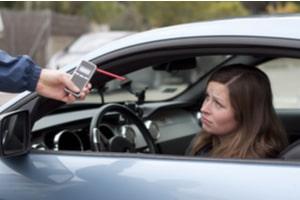 You have likely seen a Breathalyzer used in a traffic stop, either on television or by someone who has been pulled over. Since driving under the influence (DUI) is an important topic discussed in driver education classes, you may have even been able to try one out yourself. Many courses bring in the handheld machines to let students test them out by putting the small tube in their mouths, blowing, and seeing the blood alcohol concentration (BAC) record appearing at 0.00. While you were sitting soberly in class, you probably never imagined yourself being in a situation where you would have to take the test. Unfortunately, many drivers will be asked to submit to the test at some point in their lives, with possible criminal charges to follow.
You have likely seen a Breathalyzer used in a traffic stop, either on television or by someone who has been pulled over. Since driving under the influence (DUI) is an important topic discussed in driver education classes, you may have even been able to try one out yourself. Many courses bring in the handheld machines to let students test them out by putting the small tube in their mouths, blowing, and seeing the blood alcohol concentration (BAC) record appearing at 0.00. While you were sitting soberly in class, you probably never imagined yourself being in a situation where you would have to take the test. Unfortunately, many drivers will be asked to submit to the test at some point in their lives, with possible criminal charges to follow.
Knowing the Law
When sitting in your driver’s education course, all of the seemingly minor details of California roadway regulations can start to blend together. What you may have forgotten over the years is the details of California’s DUI implied consent laws. Upon signing up for their California driver’s license, all Californians sign over their right to refuse a breath alcohol test when asked by law enforcement. According to this law, any driver who is lawfully arrested for a DUI must submit to a chemical test to measure their BAC. You may be wondering what is considered a “lawful arrest.” An arrest is considered lawful if the officer has probable cause to conclude that you are driving under the influence of alcohol or other controlled substances.
How Does Getting a DUI Impact My California Car Insurance?
 Driving under the influence (DUI) of alcohol is a treacherous but common mistake that is made throughout the U.S. on a daily basis. According to the National Highway Traffic Safety Administration, there were 10,511 deaths from drunk driving accidents in 2018. Getting behind the wheel while intoxicated is rarely intentional — many people may not recognize how easy it is to surpass the 0.08 blood alcohol concentration limit. Typically, anyone who consumes one standard drink per hour remains under this 0.08 line, but it can be easy to get carried away without even realizing it. Being charged with a DUI has serious consequences, many of which can impact your finances and your future.
Driving under the influence (DUI) of alcohol is a treacherous but common mistake that is made throughout the U.S. on a daily basis. According to the National Highway Traffic Safety Administration, there were 10,511 deaths from drunk driving accidents in 2018. Getting behind the wheel while intoxicated is rarely intentional — many people may not recognize how easy it is to surpass the 0.08 blood alcohol concentration limit. Typically, anyone who consumes one standard drink per hour remains under this 0.08 line, but it can be easy to get carried away without even realizing it. Being charged with a DUI has serious consequences, many of which can impact your finances and your future.
Financing My Security
As is the case in most states, California requires all car owners to have proof of insurance of their vehicle. This shows that they are able to provide financial assistance for any injuries or damages that may have been caused by their driving. California’s average auto insurance rate is slightly higher than the national average — around $1,868 as compared to the national average of $1,548. However, this marginal difference increases significantly upon a DUI conviction. On average, insurance rates nationally increase by 65 percent if convicted of a DUI charge. In California, this insurance price rises to $4,937, a 164 percent increase from the state’s average rate. DUI charges typically result in the highest rate increase of any driving charge.
Why Can You Be Charged with DUI for Using Marijuana in a Parked Vehicle?
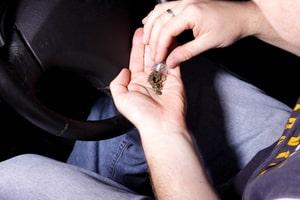 Though recreational marijuana is legal in California, there are still many restrictions on how you can use it. For instance, you are not allowed to have marijuana in an open container in your vehicle. When transporting marijuana, it must be in a sealed container. Using marijuana in a parked vehicle may be a violation if you are near a public place where use is restricted, such as a school. There is also the possibility that you could be charged with driving under the influence of marijuana if you are caught using the substance in a parked vehicle.
Though recreational marijuana is legal in California, there are still many restrictions on how you can use it. For instance, you are not allowed to have marijuana in an open container in your vehicle. When transporting marijuana, it must be in a sealed container. Using marijuana in a parked vehicle may be a violation if you are near a public place where use is restricted, such as a school. There is also the possibility that you could be charged with driving under the influence of marijuana if you are caught using the substance in a parked vehicle.
Marijuana DUI Without Driving
A police officer does not need to have witnessed you driving in order to arrest you on suspicion of DUI involving alcohol, marijuana, or other drugs. There may be circumstantial evidence that you had recently been driving, such as:
- Where your vehicle is parked
- Whether the vehicle is still running or the keys are in the ignition
What Are the Penalties for Having an Open Alcohol Container in Your Car?
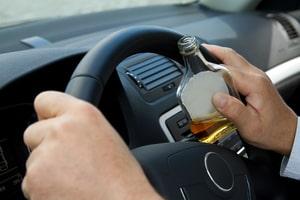 When it comes to criminal law, alcohol does not mix well with driving. Drivers should know that it is illegal to drive while under the influence of alcohol, which California defines as having a blood alcohol concentration that is greater than 0.08 percent. It can also be illegal to possess an alcoholic beverage in a vehicle, depending on where the beverage is and what has been done with it. Violating the open container law in California is not as serious as being convicted for DUI, but the consequences can eventually add up to more serious penalties.
When it comes to criminal law, alcohol does not mix well with driving. Drivers should know that it is illegal to drive while under the influence of alcohol, which California defines as having a blood alcohol concentration that is greater than 0.08 percent. It can also be illegal to possess an alcoholic beverage in a vehicle, depending on where the beverage is and what has been done with it. Violating the open container law in California is not as serious as being convicted for DUI, but the consequences can eventually add up to more serious penalties.
Defining Open Containers
An open container violation can occur if a police officer notices a container in plain view inside of a vehicle or discovers it during an authorized vehicle search. California law deems an alcohol container to be open if:
- The top has been opened
- A seal has been broken
- The container is partially or totally emptied
Compounding a DUI with a Hit-and-Run Charge
 A person who gets into a vehicle accident may panic and flee the scene before police arrive – especially if they fear that the officer may arrest them for a crime such as driving under the influence. A hit-and-run charge involving personal injury or death can be a misdemeanor or a felony, depending on the severity of the injuries and the circumstances of the accident. The same applies to DUI with injury and DUI vehicular manslaughter charges. The penalties become more severe when you combine a DUI charge with a hit-and-run charge. However, California is trying to fix a loophole in its criminal code that can benefit people suspected of DUI who flee an accident.
A person who gets into a vehicle accident may panic and flee the scene before police arrive – especially if they fear that the officer may arrest them for a crime such as driving under the influence. A hit-and-run charge involving personal injury or death can be a misdemeanor or a felony, depending on the severity of the injuries and the circumstances of the accident. The same applies to DUI with injury and DUI vehicular manslaughter charges. The penalties become more severe when you combine a DUI charge with a hit-and-run charge. However, California is trying to fix a loophole in its criminal code that can benefit people suspected of DUI who flee an accident.
Hit-and-Run vs. DUI
It is difficult for prosecutors to prove that someone charged with a hit-and-run was also under the influence of alcohol or drugs at the time of the accident. It may be hours or days before the defendant is arrested for the hit-and-run, by which point there is no longer chemical evidence of DUI. While a hit-and-run is still a serious charge, consider the difference in penalties:
 415-729-7300
415-729-7300




